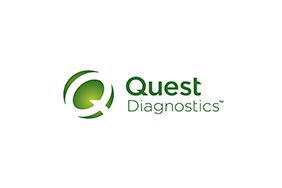For Employers Struggling To Retain Workers, Quality Healthcare Matters
Published 06-09-22
Submitted by Quest Diagnostics

Originally published by Modern Healthcare
It’s tougher to find and keep workers, thanks to the Great Resignation. Steve Rusckowski, Chairman, CEO and President of Quest Diagnostics, has some thoughts about how to help fellow employers, based on his own company’s experiences. Quest is the leading provider of health diagnostics in the U.S., serving over one-third of the U.S. population annually. The company provides results for nearly two million tests daily, ranging from routine testing to breakthrough genetic testing.
How did the COVID-19 impact the health of the U.S. workforce, and what are large employers doing about it?
SR: More than two years after the start of the COVID-19 pandemic, overall population health continues to suffer in part due to delayed healthcare. By deferring doctor visits and routine health screenings, chronic conditions and new diagnoses have gone untreated.
For healthcare leaders serving as both large employers and healthcare providers, we need to support our employees to help address this hidden epidemic and get back to prioritizing preventative care. Lab testing is an important part of improving health and wellness, but employees throughout the nation who are covered by employer-based health plans pay millions in unnecessary out-of-pocket costs each year by not realizing options available within their network or price fluctuations for services within a network, creating yet another barrier to care. This is a challenging time for all employers dealing with a tight labor market and shortages of available workers.
What data does Quest have that shows how workers are feeling about their health and the cost of care?
SR: To better understand the primary concerns and desires of employers and employees regarding benefits, employer health programs and safety in the workplace, Quest Diagnostics commissioned a survey of over 400 human resources benefits managers and executives with decisionmaking authority (HREs) and nearly 850 office workers (employees) at companies with at least 100 workers.
Our survey found that 78% of HREs say their organization has been impacted by the Great Resignation. Most have increased wages and/or added rewards and benefits to counter the trend to attract and retain workers. And yet, their employees may not be getting the message, as 66% say that they are thinking about changing jobs in the next year or have begun or recently completed a job change.
Our study found that 63% of workers put off routine checkups and screenings over the last two years, and 77% said that it was difficult to practice preventive care during the pandemic.
Another finding of the study is that 87% of HREs and 89% of employees worried healthcare costs will increase this year.
What are some things employers like you can do to support employees and work to lower healthcare costs?
SR: As employers we must take the steps necessary to educate employees about their healthcare coverage and reinforce individual employees/patients' roles in avoiding unnecessary costs. Several years ago, we looked at how we could control our own healthcare costs at Quest while maintaining program quality and promoting population health for the 60,000 members of our self-insured health plan. One way that we approached reducing the cost of care was to look at our own out-of-network spending, including diagnostics testing. Employers should establish educational programs that include regular communication through employee channels, warning employees about unintended out-ofpocket costs and how to avoid unnecessary charges.
The bottom line is that access to care matters now more than ever. Employers need to get creative and be more proactive to limit out-of-pocket healthcare costs to help diminish barriers to care.
How is Quest working to promote the triple aim of healthcare?
SR: Many people may not realize the importance of laboratory testing to inform medical determinations and treatment plans. While the lab industry makes up approximately 3% of healthcare costs, 70% of care-based decisions are informed by diagnostics testing.
By offering quality, innovative healthcare solutions at the right price, we can help employers improve the healthcare experience for their employees, minimize out-of-pocket costs and support them in achieving better outcomes. We need to bring humanity back into healthcare and delivering quality care at the right value to our employees and their families is an important part of that promise.

Quest Diagnostics
Quest Diagnostics
Quest Diagnostics works across the healthcare ecosystem to create a healthier world, one life at a time. We provide diagnostic insights from the results of our laboratory testing to empower people, physicians and organizations to take action to improve health outcomes. Derived from one of the world's largest databases of de-identifiable clinical lab results, Quest's diagnostic insights reveal new avenues to identify and treat disease, inspire healthy behaviors and improve healthcare management. Quest Diagnostics annually serves one in three adult Americans and half the physicians and hospitals in the United States, and our nearly 50,000 employees understand that, in the right hands and with the right context, our diagnostic insights can inspire actions that transform lives and create a healthier world.
More from Quest Diagnostics

